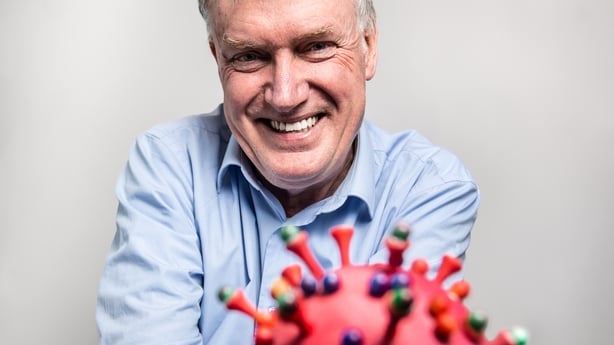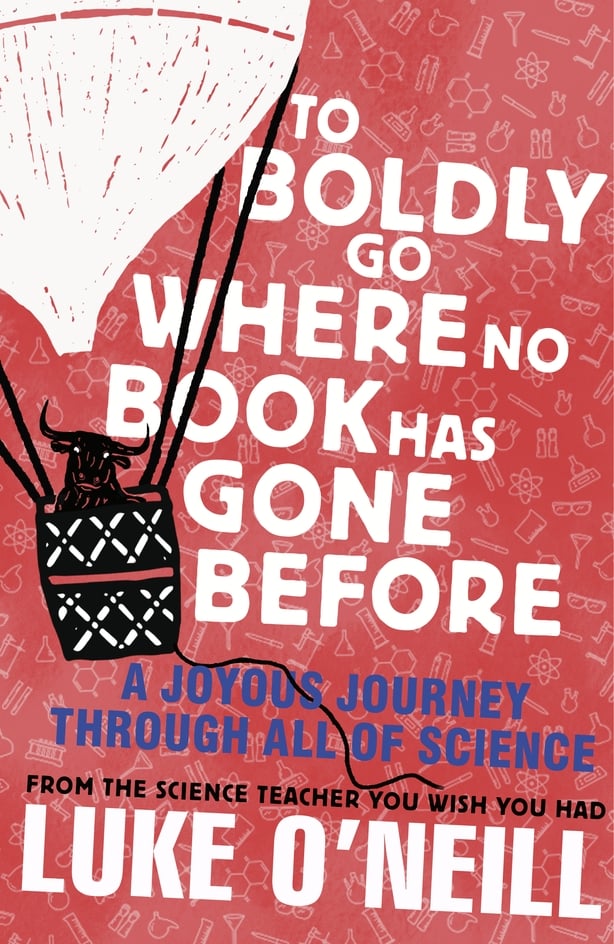We present an extract from Professor Luke O'Neill's new book To Boldly Go Where No Book Has Gone Before.
Science is a serious business, right? Wrong. Scientists have been participants in the best reality show of all time, with all the highs, lows, bust-ups, and strange personalities of any show on telly today. This hugely accessible history of science reveals the human stories behind the biggest discoveries.
In this extract, Luke talks about his own journey into the scientific world.
For me, the science bug really bit when as a 20-year-old student I did proper research for the first time. I was looking into an inflammatory disease called Crohn's disease, which affects the digestive system. If left untreated, it is debilitating, involving a lot of pain, ulceration and bleeding. It can be fatal, and often requires surgery. Researching what might be going wrong in the body for those suffering from Crohn’s disease struck me as very interesting. I realized I might find out something new about the disease, and that knowledge could help make peoples’ lives better.
This led me to a PhD in London, where I did more work on inflammatory diseases – this time rheumatoid arthritis, which is where the joints become painful. I’d cycle over from my lab in Lincoln’s Inn Fields to St Thomas’ Hospital to collect samples taken from patients, and then grow cells from the samples to try to find out what was going wrong in the diseased tissue.
One day I was allowed to watch the surgeon remove the joint tissue from a woman who had kindly volunteered part of her hip for my research. I met her after the operation to thank her and she asked me what I worked on, and I told her, 'Rheumatoid arthritis.’ ‘Oh,’ she said, ‘do you work on other Eyetises?’ I said I didn’t know what she meant. She replied, ‘Eyetises, do you work on other Eyetises?’ I asked her again for clarification. She began to get annoyed. ‘Eyetises! Eye- tises! Like arthr-eyetis or menig-eyetis or dermat-eyetis.’

I did proper research for the first time'.
‘Ah,’ I said, ‘yes, Eyetises! Now I get it!’ I was happy to explain to her that any disease ending in ‘itis’ means it’s an inflammatory disease. Inflammation happens when you have an injury or infection and involves the affected area becoming red, swollen, hot and painful. These all happen in rheumatoid arthritis, but we still don’t know why. It’s a question I’ve been trying to answer for almost forty years.
In fact, I have spent my whole career working on Eyetises. More specifically, for my PhD I worked on what were then new-fangled things called cytokines, which are made by the immune system – the part of your body that defends you against infection from bacteria, viruses, parasites and fungi (this last one sounds a bit less scary than the others, but suffice to say, I am not talking about shiitake mushrooms). Cytokines are like messengers that sound the alarm and wake up the immune system’s troops to fight the invader. But in inflammatory diseases like Crohn’s disease or rheumatoid arthritis, they turn on our own tissues, causing the immune system to run riot there, as if there is an infection. Only, from what we currently know, there isn’t. This is the reason why a disease like rheumatoid arthritis is called an auto- immune disease – from the Greek autós, meaning ‘self ’. It turns out that cytokines cause most of the symptoms of that disease – and many others – and stopping them helps patients a great deal.
Since my PhD, my research has led to discoveries about the immune system, and I have helped in the discovery of new medicines that are currently being tested in clinical trials. And so the boy who almost blew up his bedroom and couldn’t sheath a thermometer was made a Fellow of the Royal Society in 2016. The Guardian rather grandly calls this ‘the equivalent of a lifetime achievement Oscar.

To Boldly Go Where No Book Has Gone Before by Luke O'Neill is published by Viking. O'Neill's children's book Show Me The Science is published by Gill Books and is also out now.

